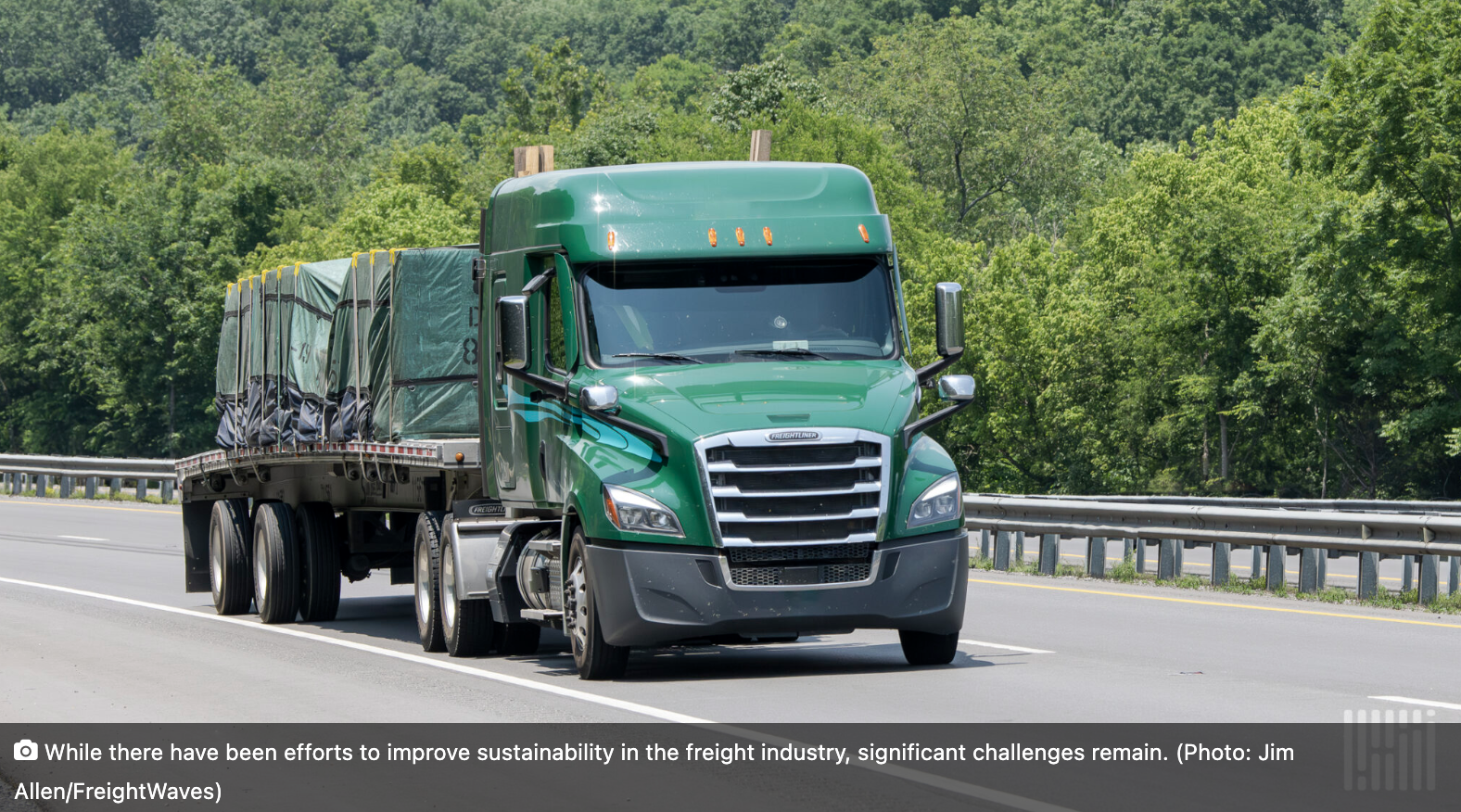


The views expressed here are solely those of the author and do not necessarily represent the views of FreightWaves or its affiliates.
Sustainability has become the topic of conversation in our industry these past couple of years. Many supply chain folks write and talk about it in articles, at industry conferences and on webinars. And while there have been efforts to improve sustainability in the freight industry, the undeniable fact is that significant challenges remain.
Progress has been much slower than desired — or would I say required — to preserve our increasingly vulnerable planet.
We read daily about the importance of sustainability and how companies continue to invest in their environmental, social and governance programs. We read about inflated stories only to find out they were examples of greenwashing. And some leaders might not even recognize we have a problem in the first place.
I wrote this article while facing 110-degree days in Dallas and while watching news clips of 200-plus ships waiting to go through the Panama Canal as drought has created a bottleneck. So the question that comes to mind is: Why aren’t we collectively doing more to positively impact the environment?
We know supply chains continue to have their fair share of challenges, which could have impacted the progress made to date. Some of those challenges include the ever-increasing complexity of the supply chain. The freight supply chain is highly complex, involving multiple stakeholders, modes of transportation and regulatory considerations. Freight operations often involve cross-border transport and global supply chains. Harmonizing sustainability efforts across different countries with varying regulations and priorities can be complicated.
Implementing sustainable practices across this complexity can be challenging and requires coordination among various parties. Transitioning to more sustainable freight practices often requires significant investments in new technologies, vehicles, infrastructure and training. Many companies may hesitate due to the upfront costs and uncertainty about the return on investment. Then there is the absence of standardized sustainability metrics and guidelines that can make it difficult to compare and track progress across different companies and sectors.
Read more: FreightWaves
561-295-1777